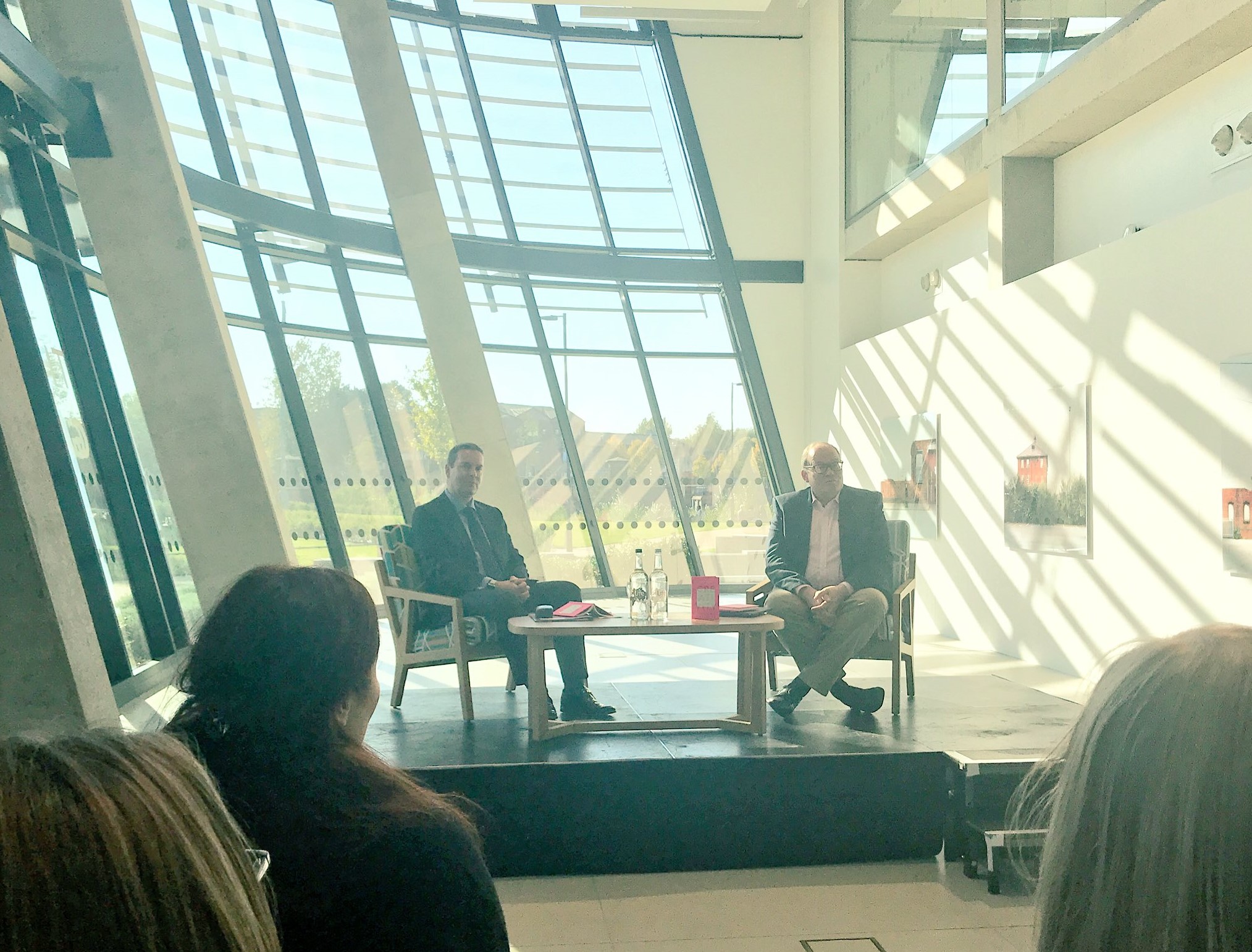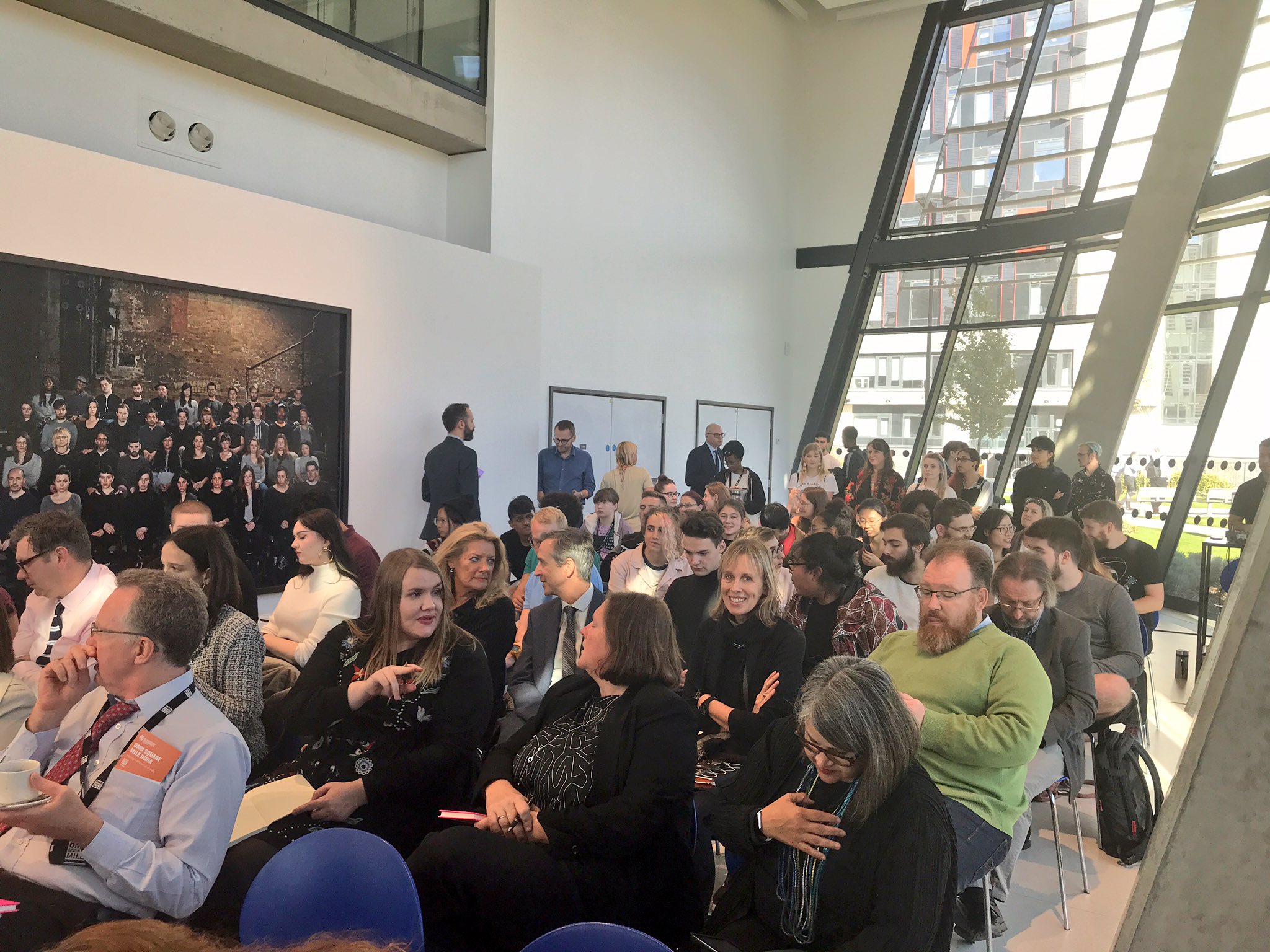People need to view creativity in the same way as they do maths and English – as an essential skill that will help them throughout their lives.
That was the view of Darren Henley, chief executive of Arts Council England, who came to De Montfort University Leicester (DMU) to talk about his new book Creativity in conversation with Vice-Chancellor Professor Dominic Shellard.

The book, Creativity: Why It Matters makes the case for championing and valuing creativity in our economy, in communities and in our lives, and why he believes it should be given much more emphasis in education.
“Every subject can be taught creatively and involve creativity,” said Mr Henley. “It’s often described as ‘soft skills’ but I don’t think creativity is something that should be seen as a soft skill. I think it is equally as important as literacy and numeracy.
“We have got to find a way for us to value that as a society. In expensive private schools this is a given. When parents go and look around those schools, they don’t see a maths class. They see the arts block, they are shown the stage, or the arts facilities.
“Not everyone has those opportunities available to them. We have a 19th century faculty system where we make decisions that change your life at 14 and 15 and I think that is completely wrong.”
DMU is working with the Arts Council on a major 25-year project to introduce arts to children at the very start of their life. It will attempt to quantify, for the first time, the long-term effects on young people of deliberately-planned arts experiences.
Mr Henley said he was determined that the exposure to arts education which was the everyday experience of privately-educated people in power such as politicians, policymakers and company directors was shared with communities which do not have those same life chances.

Giving creativity the same importance as maths and English would help to encourage more people to try new ideas and innovate. He said: “It goes without saying that literacy and numeracy should be central pillars of every child’s education, but so should creativity.
“By all means equip children with knowledge and skills and understanding across a wide range of subjects but give them the creativity to use those talents to the full. The bosses at Google take on humanities PhDs for that very reason. I was talking to a Big Four accounting firm, and they said they wanted the drama students - the ones who had that something extra, that experience of ideas that comes from living a creative life.”
After a Q&A, students queued to be able to deliver a one-minute pitch about their passion project or idea with Mr Henley.
- Creativity: Why It Matters is published by Elliott and Thompson.
Posted on Monday 15 October 2018